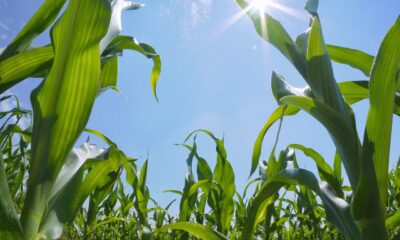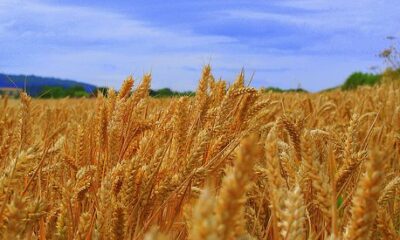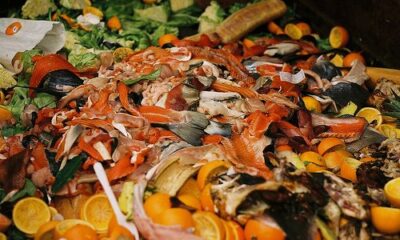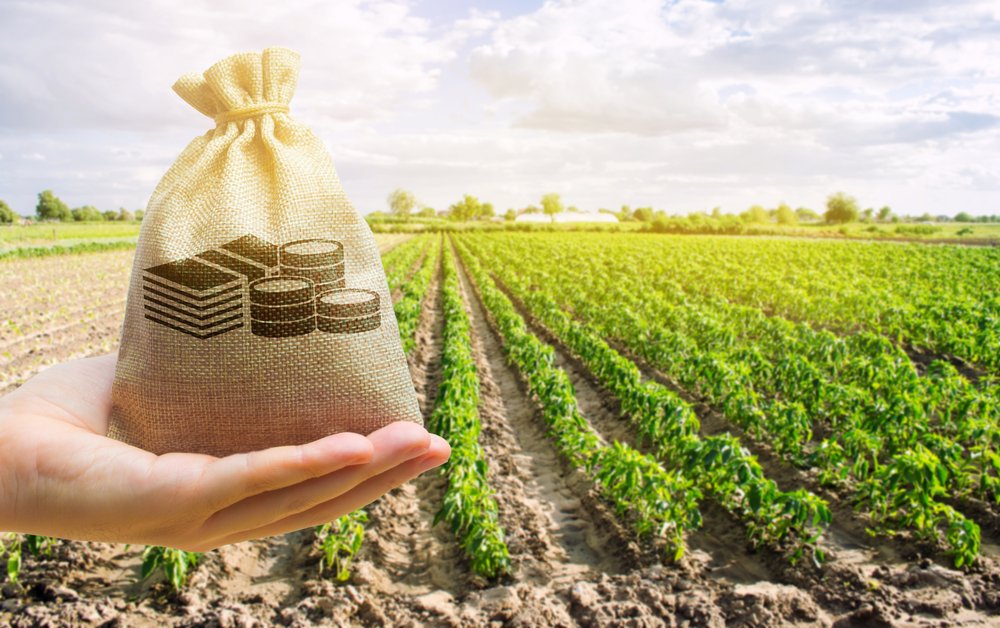
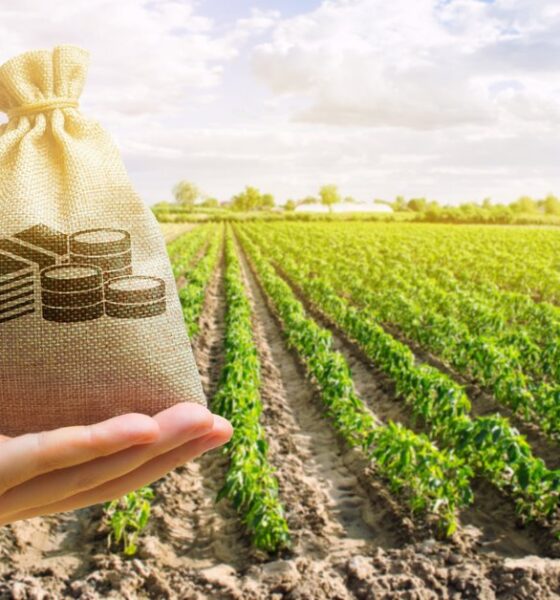
Environment
The Effect of Climate Change On Crop Yielding
The climate of the world has changed dramatically over the past decade. Many animals are on the verge of extinction, and glaciers are melting at a very high rate. Floods, deforestation, and the rapidly increasing climate of the world have been communicated to the world so that necessary measures are taken to protect what we have left and start building a cleaner and healthier earth again.
Slowly and gradually, people are shifting towards more eco-friendly options that will help the earth rather than cause further damage. The change that we want in our environment must start with ourselves. Otherwise, we will be left with nothing behind. Every person working in different sectors of the world needs to understand that there are certain things that they can do to preserve the life left on earth. The tragedy is that people only think about their selves and what is profitable to them rather than what is suitable for the atmosphere. The ozone layer is depleting daily, harming the lives of many people on the planet. People are falling prey to skin diseases. That’s why there has been an uproar about the use of sunblocks.
Temperature Changes: Impact on Crop Yielding
Temperature changes have a major impact on crop yields and the food supply. With increasing temperatures due to climate change, it is important to understand the effect this has on crops. As global warming continues to affect the environment, even minor temperature increases can cause major changes in crop yields that could lead to food insecurity and famine in many countries.
Studies of past years show that with each degree Celsius increase in temperature, there is a decline in crop yields of up to 10%. This could be due to negative impacts on photosynthesis or increased water stress as temperatures rise. Additionally, extreme weather events such as floods or droughts can be more frequent with higher temperatures, leading to further losses in crop production.
Taking small steps
Taking small steps wherever you are is the key to starting dramatic changes in society.
- If you are someone reading this from inside the comfort of your home, you can start by changing things in your own house, like changing the laundry detergent you use. Get rid of those toxic chemicals and buy an eco-friendly laundry detergent that is not harsh on you, your kids, or the environment.
- There need to be climatic agendas and laws that every business owner and industrialist should abide by. When there is a proper law about something, people will not be able to ignore it because they know that they will get fined for it and receive immense amounts of backlash from people that will not be profitable for the business.
- Farmers have also started to change the methods of agriculture they use to produce crops. Many significant things, like cutting down vegetation and using chemical fertilizers, add chemical properties to fruits and vegetables and seep into the soil to damage the earth.
What is crop yielding
You might be wondering what crop yielding is and whether it is the method farmers have adopted to measure the amount of crop produced per acre. The answer is yes.
- Some of the many methods that farmers have adopted over the years are crop yielding, but it has recently come to attention that crop yielding is affected by the changes that are occurring in the climate.
- The earth’s population is increasing swiftly, and scientists predict that the world’s total population by 2050 will be 9.8 billion, which is an increasingly alarming amount. For this, farmers need to start taking protective measures today so that by the time there is less place left on the earth; they have more to provide.
- Food production is estimated through crop yield, commonly used on corn, cereal, and barley, typically measured in grams.
Importance of crop yield
The central advantage humans get through high yield farming is estimating and understanding that enough crop is being produced to meet the needs of people.
- Farmers can take steps regarding crop yield if they feel something is going wrong and less crop is being produced.
- Crop yield is also essential for the livelihood of farmers as there is one significant rule the amount of food a farmer will produce, and he will be given money according to it.
Climate change and crop yield
Water is becoming less and less on the earth rapidly because of the increasing amount of evaporation. You must know that water is an essential factor in the production of crops.
- For several years scientists have been trying to understand the process of crop yield and the link of water to it. They are trying to make people understand that crops produced by farmers in the future will not be able to grow if there is no water.
- Multiple studies have also proposed that temperature is more critical than water when growing crops. If the earth’s temperature keeps increasing, it will be difficult for farmers to produce crops because everything they plant will get burned down, or the seasons won’t allow it to grow.
- For the growth of crops, the soil in which the seeds are sowed needs to be moist, but that is a significant problem these days because the temperature is so high that a large amount of evaporation occurs, leaving fewer nutrients for the soil.
- Other committees have been working day and night and collecting funds to give to farmers so they can take appropriate means to secure all the land they have without any harm.
- There need to be ways in which people will work together to bring a moderate temperature to the atmosphere while working on the water problems.
- Other researchers have also proposed that high temperature is less harmful than low temperature. There are other problems that farmers need to be afraid of, like drought and flooding.
- There needs to be further investigation using satellite images to make people understand that climate change is a big deal and must be taken seriously before the world gives up.
Many people spread in all parts of the world are working on preserving the last of what is left on the earth. We also need to take specific measures to ensure that the world is safe in our hands. Staying inside our homes during the pandemic proved that humans threaten the earth.
Conclusion: Meeting Future Challenges
The conclusion of this study is that climate change will have a profound impact on crop yields. With temperatures increasing, farmers must adjust their practices in order to maximize the yield of their crops and meet future challenges. As global warming continues to increase, it is important for those in the agricultural sector to understand how climate change affects crop yields and take steps to mitigate its effects.
Farmers need to adopt new production strategies in order to survive and thrive under changing climates. This may include diversifying crops, developing drought-resistant varieties or even changing the way they grow these crops by adjusting irrigation systems or utilizing different soil amendments. By doing so, farmers can ensure that they are able to continue producing healthy food for generations to come despite the effects of climate change on crop yielding.


 Environment12 months ago
Environment12 months agoAre Polymer Banknotes: an Eco-Friendly Trend or a Groundswell?

 Features11 months ago
Features11 months agoEco-Friendly Cryptocurrencies: Sustainable Investment Choices

 Features12 months ago
Features12 months agoEco-Friendly Crypto Traders Must Find the Right Exchange

 Energy11 months ago
Energy11 months agoThe Growing Role of Solar Panels in Ireland’s Energy Future

